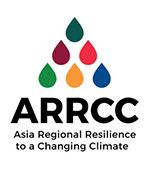Climate Analysis for Risk Information & Services in South Asia (CARISSA)
The aim of the CARISSA project was to improve the uptake and use of regional climate change information across South Asia.

Through engaging with different user groups (including impact scientists, intermediaries and decision-makers), and collaborating with national and regional institutions, CARISSA built on state-of-the-art climate science to better articulate future climate risks and guide adaptation decisions.
The Met Office ARRCC team worked in partnership on this project with a range of organisations, including: International Centre for Integrated Mountain Development (ICIMOD), India Institute of Tropical Meteorology (IITM), Nepal Development Research Institute (NDRI), Bangladesh University of Engineering and Technology (BUET), World Food Programme (WFP), Department of Hydrology and Meteorology (DHM) Nepal, Bangladesh Meteorological Department (BMD), Pakistan Meteorological Department (PMD), Institute of Water Modelling (IWM), World Meteorological Organization (WMO) Global Framework for Climate Services (GFCS).
The CARISSA project encompassed seven workstreams, determined following engagement with partners and stakeholders in the ARRCC inception period in late 2018 and early 2019. The workstreams were:
- Workstream 1 - Training and capacity development: Strengthening the knowledge and capabilities of providers and users of climate projection data.
- Workstream 2 - Development of regional forum on climate change: Establishing the "South Asia Climate Forum" for knowledge exchange and cooperation on climate change science and services.
- Workstream 3 - Enhancing regional climate projection data platforms: Assessing and enhancing access and usability of regional climate projection data, primarily through online platforms.
- Workstream 4 - Climate services for the hydropower sector: Bringing together users, information providers and experts in hydropower and the water sector to collaborate on improved climate information services, focusing on Nepal.
- Workstream 5 - Coastal climate services: Developing new sea level change projections for the South Asia region, and integrating this information into coastal risk assessments and planning decisions in Bangladesh and Pakistan.
- Workstream 6 - Climate services for food security: Developing climate change, food security and livelihoods assessments to inform policy decision-making at the national (focusing on Nepal) and regional scales.
- Workstream 7 - Enhancing climate observations datasets: Development of “Climate Grid” software for constructing gridded data-sets of observed climate, focusing on Pakistan.
Outputs
Regional engagement and knowledge sharing
- Regional workshop on future climate projections and their applications in South Asia (January 2019) - Read the workshop report here
- Side event on 'Development of a regional climate change forum in South Asia' at the 6th International Conference on Climate Services (ICCS6) (February 2020) - Read the meeting report here
Training and capacity development
View our impact story on strengthening capacities to analyse future climate projections and deliver climate services here
A series of training workshops on analysing future climate projections:
- Part 1: Training on CORDEX regional climate projections for South Asia (October 2020) - proceedings available here
- Part 2: Training on CORDEX regional climate projections for Nepal (June 2021) - proceedings available here
- Part 3: Spatial and temporal analysis of climate change using CORDEX regional climate models for Bangladesh (June 2022) - proceedings available here
Training on sea-level science:
- Training workshop: Sea-level science and the use of sea-level projections in Bangladesh (November 2020) - report available here
Training for users of climate information:
- Training workshop: Utilising climate science and services for policy and decision making (March 2022) - report available here
Climate services for the hydropower sector
- Project summaries:
- Regional workshop on climate change information for the water and hydropower sector (September 2019) - workshop report available here
-
Workshop on Increasing the resilience of the hydropower sector in Nepal to climate extremes (July 2022) - workshop report available here
- Understanding and quantifying extreme precipitation events in South Asia:
- Part I report - Understanding climate drivers through case studies - Available here.
- Part II report - Process-based evaluation of climate model simulations for South Asia - Available here.
- Part III - Observational datasets for the assessment of present day monsoon-season rainfall extremes in Nepal - Available here.
- Part IV - Understanding and quantifying extreme precipitation events in South Asia - Available here
- Climate Risk Narratives for the hydropower sector in Nepal - Available here
- Summary note on Observational rainfall datasets in Nepal - Available here
Coastal climate services
View our impact story on creating local sea-level projections to manage coastal climate risks here
- Review of sea-level rise science, information and services in Bangladesh (March 2020) - Available here
- Review of sea-level rise science, information and services in Pakistan (August 2020) - Available here
- Synthesis report on regional sea level projections for South Asia (March 2020) - Available here.
- Main report on sea-level projections for South Asia (August 2020) - Available here
- Sea level projections for South Asia: supporting materials and methods (August 2020) - Available here
- Comparison of local sea-level projections for South Asia (March 2022) - Available here
Science policy webinars:
- Webinar on sea level rise and coastal climate risks in Bangladesh - Available here
- Webinar on sea level rise and coastal climate risks in Pakistan - Available here
Climate and food security
- Consolidated livelihoods, food security and climate change assessment for Nepal - Available here
Climate observations
View our impact story on gridding climate observation records in Pakistan here
- Report on development of Climate Grid to facilitate the construction of gridded data-sets of observed climate for Pakistan (August 2021) - Available here
Supported by:



